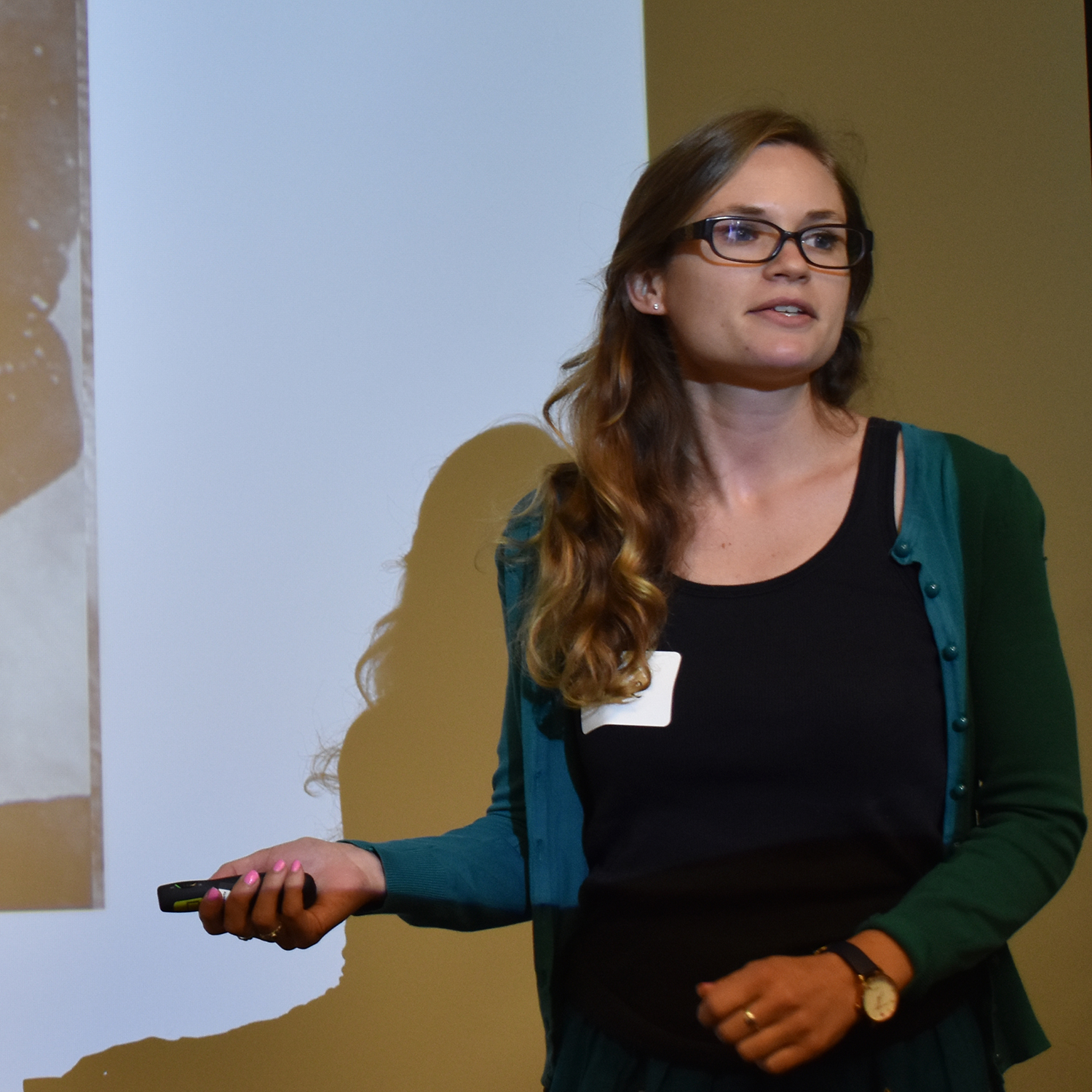
College of Sciences postdocs shine in 6th Annual Georgia Tech Postdoctoral Research Symposium, held on Sept. 19, 2019.
Postdoctoral researchers in the College of Sciences gave outstanding presentations at the 6th Annual Georgia Tech Postdoctoral Research Symposium, held on Sept. 19, 2019. The symposium was organized by Postdocs@Tech and the Office of Postdoctoral Services.
Samantha Buzzard received the Best Talk Overall award for her presentation “A slippery situation: modelling surface melt in Antarctica.” She is a member of the Ice & Climate Group, led by Alexander Robel, assistant professor in the School of Earth and Atmospheric Sciences.
Her research, and the topic of her symposium talk, is Antarctic ice shelves. These are the floating tongues of ice that surround the Antarctic continent. "I look at how they are melting on the surface, what happens to the water, and what it might mean for the future stability of the ice shelves and ultimately of Antarctica itself under a changing climate," Buzzard says.
Buzzard earned a Ph.D. in meteorology from the University of Reading, in England, in 2017. She joined Georgia Tech in 2019.
Xavier Audier won the Best Talk from the College of Sciences award for his presentation “A fast delay line for label-free biological imaging.”
Audier is from France. He aims to use non-linear optics to develop new microscopy techniques and apply them to biologically relevant questions. He works with Marcus Cicerone, professor in the School of Chemistry and Biochemistry to improve coherent Raman Imaging techniques, particularly broadband, coherent anti-Stokes Raman scattering (CARS).
Rebecca Donegan won for Best Poster from the College of Sciences award for her poster “Coproporphyrin decarboxylase coordinates the synthesis and uptake of heme in mycobacteria.”
"I study how pathogens get the nutrients they need from the host, particularly iron in the form of heme," Donegan says. "Heme is the most abundant iron source in the human body, although how pathogens regulate heme uptake and incorporate it into their metabolism is not well-understood."
Donegan presented her work on Mycobacterium tuberculosis, which causes tuberculosis. She has found that a heme biosynthesis protein also involved in the uptake and use of heme may be involved in the bacterium's survival when it's host is deficient in iron.
Donegan works with Amit Reddi, an associate professor in the School of Chemistry and Biochemistry, whose favorite element is iron, the metal in heme. She earned a Ph.D. in biochemistry from Georgia Tech in 2015 under the supervision of chemistry and biochemistry professor Raquel Lieberman.